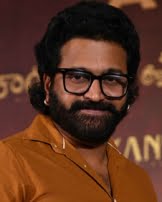While ‘Kantara’ has received lots of praise and word of mouth from critics, it has lately triggered a controversy about the appropriation of non-Hindu cultures in the film.
The period action thriller, which is set in a village Udupi, set against the backdrop of a dominant caste landlord grabbing the land of the local tribal community, Kantara is intertwined with native cultures and rituals practiced in coastal Karnataka such as Yakshagana, Bhoota Kola, Daivaradhane and Kambala.

Source- Hindustan Times
In a recent interview with the Tamil channel Cinema Vikatan, Rishab Shetty started a row by suggesting that the Bhoota Kola tradition of the Dakshina Kannada region is a part of Hindu culture. He said, “Those gods, they are all part of our tradition. Definitely, it is part of Hindu culture and Hindu rituals. Because I am a Hindu, I have belief and respect for my religion. But I will not say others are wrong. What we have said is through the element that is present in Hindu dharma.”
Chetan Ahimsa tweeted about the movie Kantara and Rishab Shetty, “It is a pleasure that our Kannada film ‘Kantara’ is making noise at the national level. Director Rishab Shetty claims that Bhutakola is Hindu culture. But it is false. Our Pambada/Nalike/Paravar Bahujan traditions are more than Vedic Brahminical Hinduism. The past. We ask that Aboriginal cultures be represented truthfully on and off the screen.”

Source- Ragalhari
There were also others who totally disagreed with Chetan and schooled him in the comment section. One user said, “He’s from Coastal KA & it is literally part of his life and tradition… & you, who never heard all the things bfr Kantara movie giving him the lecture!? Stories of Daivas literally connected to Shiva & Parvati which are narrated by Tribals.”
Another user said, “When nobody recognizes him as an actor, this’s the only way to get attention might be learnt from Bollywood fake liberals.”
According to Brahminical Hinduism, Bhoothas are distinct from the god, with the tradition predating the arrival of Vedic culture. Their stories are recorded in oral narratives or paddanas. They are often real people who fought different kinds of injustice, such as Koti and Chanayya, Tuluva warriors who fought against caste and feudal discrimination in the late 16th century. Their worship is restricted to annual ritual festivals, though daily poojas are conducted for the ritual objects, ornaments, and other paraphernalia of the bhoothas, reported The News Minute.



















































































